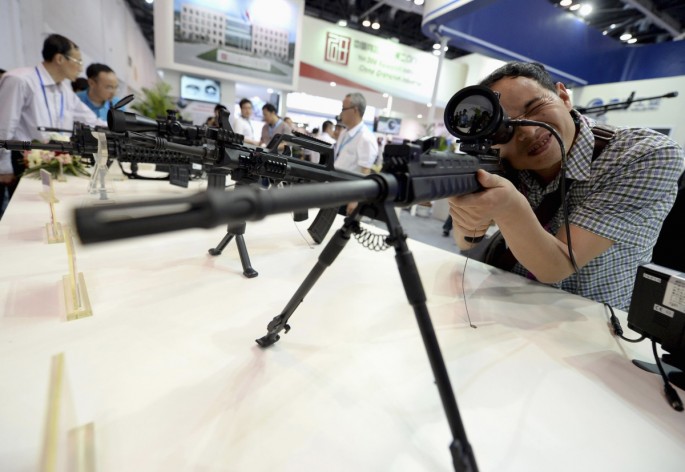China has overtaken Germany and France to become the world’s third largest exporter of arms, a Stockholm-based think tank said on Monday.
Exports of major arms from China rose by 143 percent in 2010 to 2014, versus the previous five years where the country ranked ninth globally, the Stockholm International Peace Research Institute (SIPRI) said in its annual report.
The volume of the multi-billion dollar world arms trade also rose by 16 percent in the same five-year period.
"Asian countries continue to expand their military capabilities, with an emphasis on maritime assets," Siemon Wezeman, senior researcher with the SIPRI Arms and Military Expenditure Programme, said in a news release.
However, despite its rise through the ranks, China's share in the global arms market remains small compared to United States' firm lead of 31 percent, the SIPRI report said, followed by Russia in second place at 27 percent.
The next three arms exporters are far behind with around 5 percent each, with China only slightly ahead of Germany and France, which ranked fourth and fifth place, respectively.
The latest SIPRI figures also pegged the U.S. as having the world's largest military budget at $640 billion, far ahead of China ($141.5 billion) and Russia ($87.8 billion).
In response to the study, China's Foreign Ministry said that the country takes an "extremely cautious and responsible" approach to arms exports and abides by relevant U.N. resolutions and domestic laws.
"We follow the principle that the export of arms will help increase the recipient country's legitimate self-defense capabilities and not undermine international or regional peace and stability, and we don't intervene in their domestic affairs," Foreign Ministry spokesman Hong Leo said on Monday.
Analysts say that the latest figures indicate the growing strength of China's domestic arms industry, which now produces fourth-generation fighter jets and navy frigates along with a wide range of small arms, and international buyers' increasing preference for cheap, simple and reliable China-made military equipment.
"We insist on the principles that it [arms exports] should be conducive to the legitimate self-defense capability of the recipient country, not impair international and regional peace and stability, and not interfere in the domestic affairs of other countries," Hong said.
Three Asian countries accounted for more than two-thirds of Chinese exports, the SIPRI report said, with Pakistan buying 41 percent of the total followed by Bangladesh and Myanmar. China also had 18 client nations in Africa during the period.
Sales include those of armored vehicles and transport and trainer aircraft to Venezuela, navy frigates to Algeria, anti-ship missiles to Indonesia, and unmanned combat aerial vehicles or drones to Nigeria, which is combating a radical islamist Boko Haram insurgency.






















